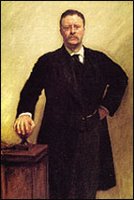New Cleveland Mayor Does Well
In First Major Address to Media
In one of his first major public appearances since being sworn in as mayor of Cleveland, Frank Jackson acquitted himself well when he spoke to a packed ballroom at the Myers University Club last week. The venue was a lunch program with the Press Club of Cleveland, and he was well-prepared.
Jackson touched on a handful of themes, but the most persistent was that his would be an administration more focused on dealing with the reality of the city's situation and its challenges than the glossier idealized versions offered by his successors. "We need to talk about the experiences of living here, both the good and the bad. I'm asking you to talk about the city--not marketing or public relations, but the reality."
He said he's been meeting at least weekly with top administrators of the Cleveland schools, trying to offer his input in the criteria they are using to search for a new administrator. "I intend to personally interview all the finalists," he said, while carefully noting that he's leaving most of the process to the educational experts.
When it came to questions about particular issues, he came out against reducing the size of council ("because I believe what I was taught--that the government that is best is the one closest to the people") and against the state repealing residency requirements for city workers ("my problem with this is purely home rule"). He talked at length about his plans for healing the rifts between city residents and police (the subject of his first news conference as mayor). "The police and citizens should not be enemies. The police are public servants, just like I am. We have to instill discipline, accountability and purpose, even as we work on raising (police) morale." The mayor, a Vietnam veteran, exercised some discipline of his own, stopping himself just as he was about to crack a joke in which he seemed about to compare Cleveland police with a military unit.
And while he replaces Jane Campbell in office, it was the specter of her immediate predecessor, Mike White, that seemed to hang over more of what he said. Asked what he expects the media-City Hall relationship to be, he noted that his staff has to deal with lots of formal requests for public information, which includes a significant backlog from his predecessor. "All I want is fairness. All I really want is a balanced approach to me, not based on a past mayor." But he drew plenty of chuckles, too, telling a roomfull of media members that "they're very suspicious people (the media), as you know."
All in all, a good beginning, I'd say.



 Is John Carroll in a Freefall?
Is John Carroll in a Freefall?



